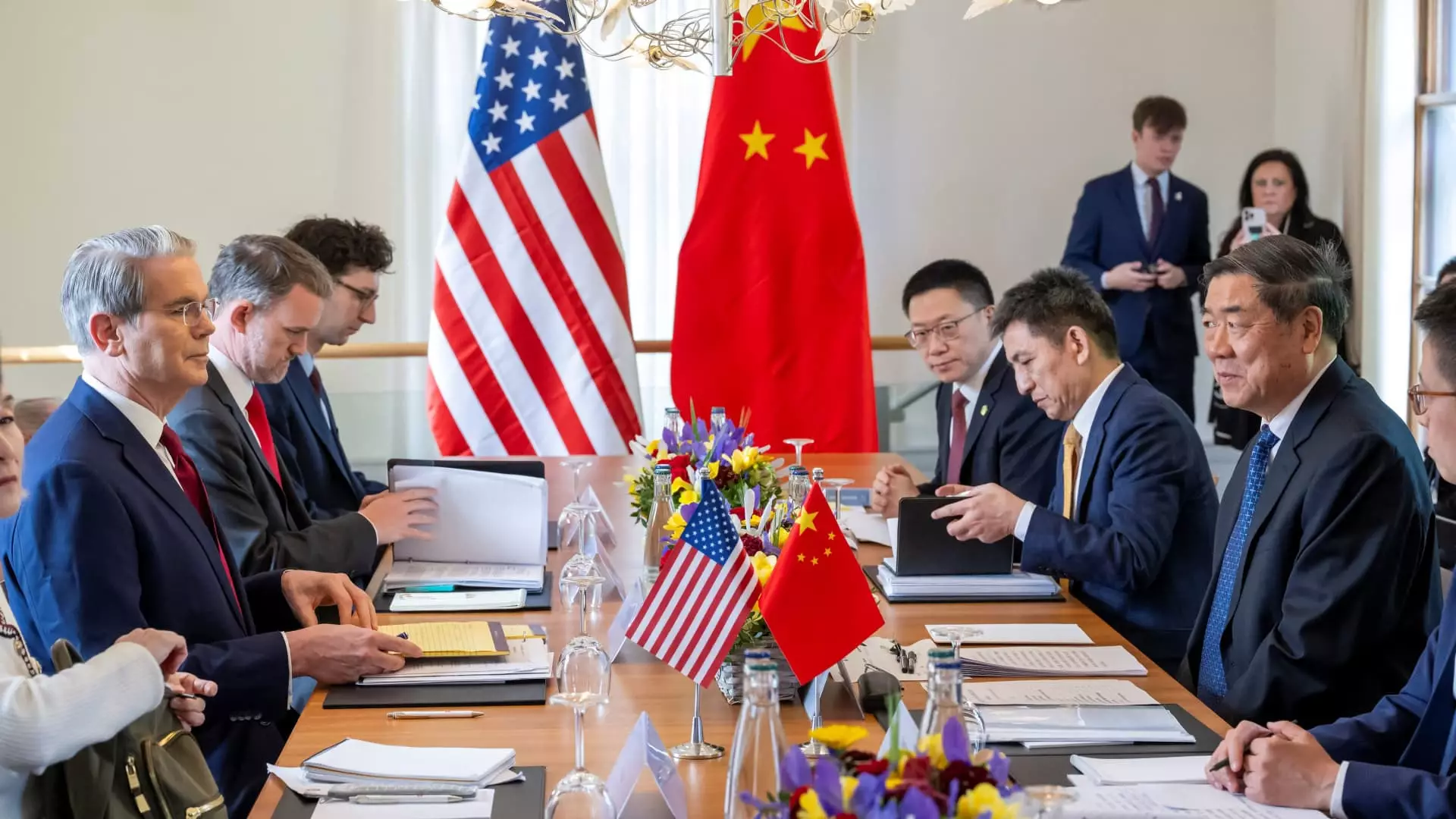In a stark display of panic-driven policymaking, the United States has once again taken a combative stance against China that could jeopardize any semblance of the fragile trade agreements established in recent weeks. The Trump administration’s warning against using Chinese-made chips, especially those linked to Huawei, reflects less a commitment to national security and more a reaction steeped in rhetoric and protectionism. It is a misguided move that reveals how easily diplomacy can unravel when driven by fear rather than thoughtful engagement.
The U.S. Commerce Department’s Bureau of Industry and Security declared these chips as potentially problematic based on dubious claims of their development violating export controls. In doing so, they risk throwing a wrench into what has been heralded as a thaw in U.S.-China relations after months of escalating trade tensions. This latest warning is likely to solidify Beijing’s view of Washington as a bully—exhibiting what is best described as unilateral overreach in a complex global landscape.
Weaponizing Trade: The Illusion of Control
The U.S. accusations concerning Huawei’s chips echo a broader trend within American governance: the packaging of trade as a means to exert control over other nations. When rhetoric turns into actionable policies that aim to isolate critical nations based on unfounded fears, it signals a new chapter in which protectionism reigns supreme. This represents a sharp divergence from the era of cooperative engagement that once characterized international trade discussions.
China’s response to the U.S. warning highlights the absurdity of wielding trade as a weapon. With calls for the U.S. to “correct its mistakes” and accusations of discriminatory practices, Beijing has challenged Washington’s narrative by pointing out that such moves could escalate tensions further. By labeling these actions as “market distorting,” China isn’t just shielding its interests; it is highlighting an unsettling truth: the very stability of the global semiconductor supply chain is now at stake.
Unilateralism Versus Multilateralism: The Stakes At Hand
The assertion that the U.S. is acting unilaterally in this instance rings alarm bells for anyone who values a cooperative approach to global issues. Most importantly, it showcases a worrying pattern of aligning U.S. fiscal policies with nationalist sentiments, potentially alienating its allies in the process. Should America continue on this destructive path, it risks creating rifts not just with China but across global markets, which rely on interdependence to thrive.
What’s even more disturbing is how this outbreak of economic nationalism cloaked in an air of protective policy could backfire. The prediction that such moves will “undermine the competitiveness of the U.S. industry” should serve as a wake-up call. If we continue to elevate isolationism over multilateralism, we may find ourselves trapped in a cycle of retaliation that further marginalizes American interests in favor of political bravado.
The Broken Mirror of Scientific Innovation
Finally, the crux of this matter lies in innovation. The Commerce Department’s assertions about the risks posed by these chips are loaded with implications about technological integrity; however, they fail to account for the detrimental impact such policies can have on global scientific progress. Limiting cooperation with Chinese technology firms not only curtails collaboration but also stifles innovation that would benefit both nations.
In essence, these actions are not merely harmful; they are historically short-sighted. By framing such moves as protective, the U.S. is neglecting the larger narrative that technological advancement knows no borders—it thrives on exchange, ideas, and joint ventures. To cut off the lifeblood of innovation in favor of political posturing is tantamount to shooting oneself in the foot while claiming to wield a sword.
The landscape of U.S.-China relations is complex and multi-layered, but the response of the Trump administration signals a disconnection from the intricacies of international economics. A cautious path must be taken, one that emphasizes collaboration over confrontation, lest we lose sight of what is truly at stake.


Leave a Reply